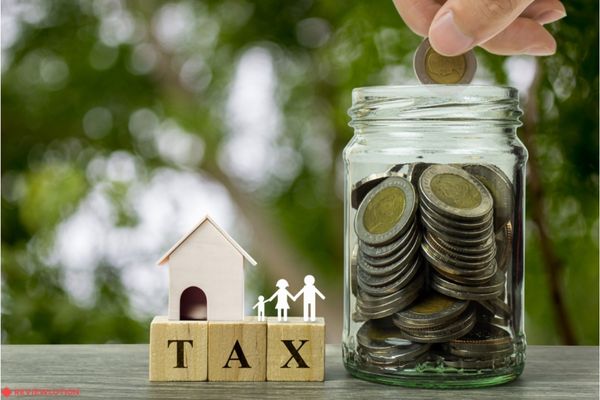How to Avoid Estate Tax in Canada: A Money-Saving Guide
Benjamin Franklin hit the nail on the head when he said “nothing is certain except death and taxes.” But did you know that the government can take a significant chunk of your estate when you die? If you want to make sure your loved ones inherit as much money as possible, it’s important to understand how to avoid estate tax in Canada.
So, here I’ll discuss how you can reduce your payable taxes at death and give you some tips. Let’s learn some stuff!
How to Avoid Estate Tax in Canada?
Now, I know the title of this article is about the Canada estate tax, but the truth is, there’s no such thing here! Similarly, Canada also lacks an inheritance tax, which I’ve talked about before.
However, this doesn’t mean that your heirs will go off scot-free without paying anything. In fact, as an alternative to the estate tax, we have taxes arising from so-called ‘deemed disposition.’
What is the estate tax in Canada?
The deemed disposition tax is Canada’s version of the estate tax, and it’s payable on the fair market value (FMV) of assets before the death of an owner. Therefore, when a person dies, the Canada Revenue Agency (CRA) considers the deceased’s property as having been sold before the death, even though it wasn’t, which is why some call it ‘death duty.’
If the property has appreciated in value, there will be a capital gain, half of which is payable in taxes. Consequently, the capital gains tax will be payable on any assets that have increased in value since they were acquired. On the other hand, if the assets have depreciated, the result will be a capital loss.
Do you have to pay taxes on a house you inherit?
In most cases, there is no estate tax in Canada on an inherited house, provided the property is a principal residence or there’s a surviving spouse or common-law partner. However, the CRA will require taxes under two separate conditions:
- If the house has appreciated in value since the death of the owner, the beneficiary will have to pay taxes on the change in value. Although this might not sound like a big deal, the amount owed could be significant due to the rapidly growing property prices.
- If the house was not a principal residence at the time of death, the beneficiary will owe capital gains taxes depending on the property’s value.
Ways to reduce taxes at death
For your convenience, here are some ways you can reduce your death taxes and give your descendants a flying start:
Plan your withdrawals
While you’re retired, you should focus on funnelling money from your RRSP or RRIF before dipping into your TFSA. Why? Because the income in the first two is subject to income tax and will be reported on your final tax return, while the money in your TFSA accumulates tax-free, which means your beneficiaries won’t owe any taxes on those gains.
Choose a principal residence
If you’re lucky enough to own more than one property, you need to pick one as your principal residence. Although there is no estate tax in Canada, you should still think about saving money. Therefore, aim for the more valuable property and eliminate its capital gains. However, remember that your other residences won’t be tax-exempt.
Plan your corporation’s shares and assets
If you own a corporation, you should think about dividing its shares and assets ahead of time. Since personal and business taxes work differently, you might benefit from a charitable bequest, an estate freeze, or other planning techniques.
Related article: What Happens to Credit Card Debt When You Die in Canada?
Apply for permanent life insurance
If your estate will be subject to capital gains after your death, you can use permanent life insurance to pay those taxes. Namely, the death benefits from a life insurance policy are typically tax-free, which means your beneficiaries won’t have to worry about meeting the tax bill.
Do you need a will?
Most definitely.
In fact, everyone should have a will! It allows you to specify how you want your assets to be distributed after you die and can help to avoid family conflicts.
On the other hand, if you don’t have a will, the government will appoint an executor to determine how your assets are divided, which may not be in accordance with your wishes.
What Taxes Are Payable at Death in Canada?
Just because Canada lacks an estate tax, doesn’t mean the government won’t ask for other taxes at death. Here’s what you might expect:
Capital gains tax from deemed dispositions
As mentioned, when you die, the deemed disposition tax applies to all of your assets. If your assets have appreciated in value since their purchase, it could trigger a capital gains tax. Usually, the estate pays about half of the capital gains in taxes, which could be a hefty sum, depending on the property’s current value.
Received death benefits tax
Although typically death benefits from life insurance policies aren’t taxable, there might be the odd instance when they are. Therefore, it’s crucial to take time to speak with a tax professional or financial advisor to determine if you owe these amounts.
Principal residence tax on deemed dispositions
I’ve already discussed the advantage of choosing a principal residence before death. So, if you own another property that isn’t your principal residence, like a cottage or a villa, that has appreciated in value since its purchase will be subject to taxation. When planning your estate, consider the implications of these fees.
Probate fee (estate administration)
In order to have a will executed, your beneficiaries will need to go through the probate process. Probate fees are typically a percentage of the value of your estate and can vary dramatically from province to province. And luckily for Quebecers, their probate tax rate is 0%!
Conclusion
Estate planning can be a zealous process, but it’ll likely make your life easier. By taking the time to plan and divide your assets, draft a will, and think about how to avoid estate tax in Canada, you can minimize the amount of taxes looming over your family’s heads and ensure you leave them with as much inheritance as possible.
FAQ
Generally, inheritance is not taxable in Canada. However, there are some exceptions to this rule. For example, if you inherit a house that was not a principal residence, any capital gain on the property will be subject to taxation. Additionally, if you receive death benefits, these amounts may require taxes in some cases.
When someone dies, their investments are subject to the same rules as any other asset. Namely, the assets will be taxed according to the deemed disposition rule and the capital gains tax will apply if any investments have increased in value since their purchase. If the investments are in a registered account, like a TFSA, and the deceased has named a beneficiary to take over the account, taxes won’t be owed.
There is no inheritance tax in any Canadian province. The closest Canadians have to inheritance or estate taxes is the deemed disposition fee.












